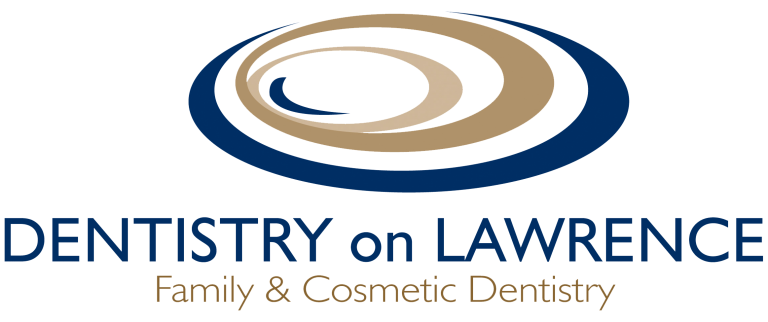When facing tooth loss, patients at Dentistry on Lawrence in Kitchener often wonder which replacement option offers the best long-term value. Dental implants have revolutionized tooth replacement, but understanding how they compare to traditional options helps make informed decisions about oral health investments.
Understanding Your Tooth Replacement Options
Modern dentistry offers several solutions for missing teeth. Dental implants represent the most advanced option, while dentures, bridges, and partial dentures provide alternative approaches. Each treatment has distinct advantages and considerations that affect long-term outcomes.
The choice between dental implants and other options depends on various factors. Bone density, overall health, budget, and personal preferences all influence the decision. However, comparing these treatments reveals significant differences in durability, function, and cost-effectiveness.
How Dental Implants Work Differently
Dental implants replace both the tooth root and crown, creating a complete restoration. Titanium posts integrate with jawbone tissue, providing stable foundations for replacement teeth. This unique approach preserves bone structure and maintains facial support naturally.
Other replacement options sit on top of existing structures without replacing roots. Dentures rest on gums, while bridges anchor to adjacent teeth. These methods can be effective but don’t address underlying bone loss issues.
Dental Implants Compared to Complete Dentures
Traditional dentures offer an affordable solution for multiple missing teeth. However, they require daily removal for cleaning and often need adhesives for stability. Many denture wearers experience slipping, clicking, or difficulty eating certain foods.
Dental implants eliminate these common denture problems entirely. Implant-supported teeth function like natural teeth, allowing patients to eat any food confidently. Cleaning involves regular brushing and flossing, just like natural teeth.
Comfort and Confidence Differences
Dentures can cause sore spots and require adjustment periods for speech. Many patients feel self-conscious about denture movement or potential embarrassment. Conversely, dental implants feel completely natural and restore full confidence in social situations.
The psychological benefits of dental implants often surprise patients. Eating, speaking, and smiling become effortless again. This improved quality of life represents a significant advantage over removable dentures.
Dental Implants Versus Bridge Treatments
Dental bridges connect replacement teeth to adjacent natural teeth for support. While bridges provide fixed solutions, they require altering healthy teeth permanently. The preparation process removes enamel from supporting teeth, making them vulnerable to future problems.
Dental implants preserve adjacent teeth completely. Each implant stands independently, maintaining the integrity of surrounding natural teeth. This conservative approach protects long-term oral health more effectively.
Longevity Considerations
Bridges typically last 10-15 years before requiring replacement. The supporting teeth may develop problems over time, potentially compromising the entire restoration. Conversely, dental implants can last decades with proper care, often outlasting other treatment options significantly.
The failure of one component in a bridge affects the entire restoration. However, individual dental implants can be maintained or replaced independently if issues arise.
Long-Term Cost Analysis of Dental Implants
While dental implants require higher initial investment, they often prove more economical long-term. Other replacement options need periodic adjustments, repairs, or complete replacements throughout a patient’s lifetime.
Dentures require relines, adjustments, and eventual replacement every 5-7 years. Bridges need replacement approximately every 10-15 years. These ongoing costs accumulate significantly over time, often exceeding the initial cost of dental implants.
Hidden Costs of Alternative Treatments
Denture adhesives, cleaning solutions, and adjustment appointments create ongoing expenses. Bridge failures may require expensive repairs or complete reconstruction. Meanwhile, dental implants typically need only routine dental cleanings and occasional minor adjustments.
The preservation of jawbone structure by dental implants prevents costly bone grafting procedures later. Other replacement options allow continued bone loss, potentially requiring expensive reconstructive treatments in the future.
Maintenance Requirements for Dental Implants
Dental implants require the same care as natural teeth. Regular brushing, flossing, and professional cleanings maintain implant health effectively. This simple maintenance routine appeals to patients seeking convenient solutions.
Dentures demand special cleaning procedures, overnight soaking, and careful handling. Bridges require specialized flossing techniques and may need water flossers for thorough cleaning. These additional maintenance steps can be cumbersome for some patients.
Daily Life Impact
Patients with dental implants report minimal lifestyle changes after healing. Eating restrictions disappear, and oral hygiene routines remain familiar. Other replacement options often require dietary modifications and learning new care techniques.
The convenience factor of dental implants becomes apparent in daily activities. Travel becomes easier without denture supplies, and emergency repairs are rarely needed.
Making Your Decision at Dentistry on Lawrence
Choosing between dental implants and other replacement options requires careful consideration of individual circumstances. The team at Dentistry on Lawrence evaluates each patient’s unique situation to recommend the most appropriate treatment.
Factors like bone density, medical history, and lifestyle preferences influence treatment recommendations. While dental implants offer superior long-term benefits for most patients, alternative options may be appropriate in specific situations.
Ready to explore your tooth replacement options? Contact Dentistry on Lawrence at 519-744-6533 or visit the office at 232 Lawrence Ave in Kitchener. The experienced team can help determine which solution best meets your needs and budget.
